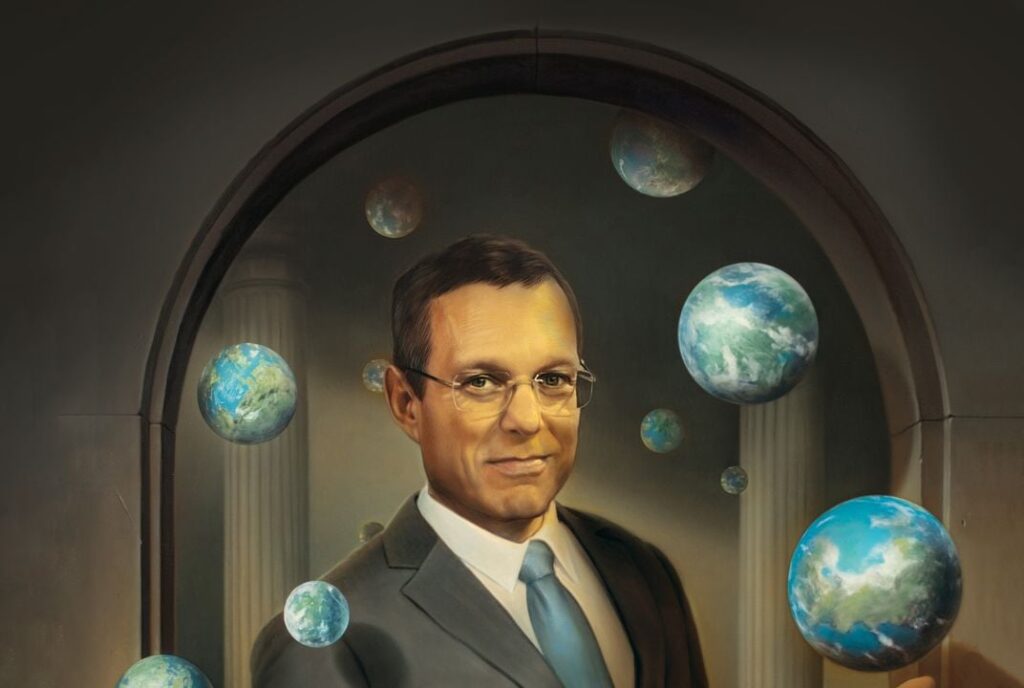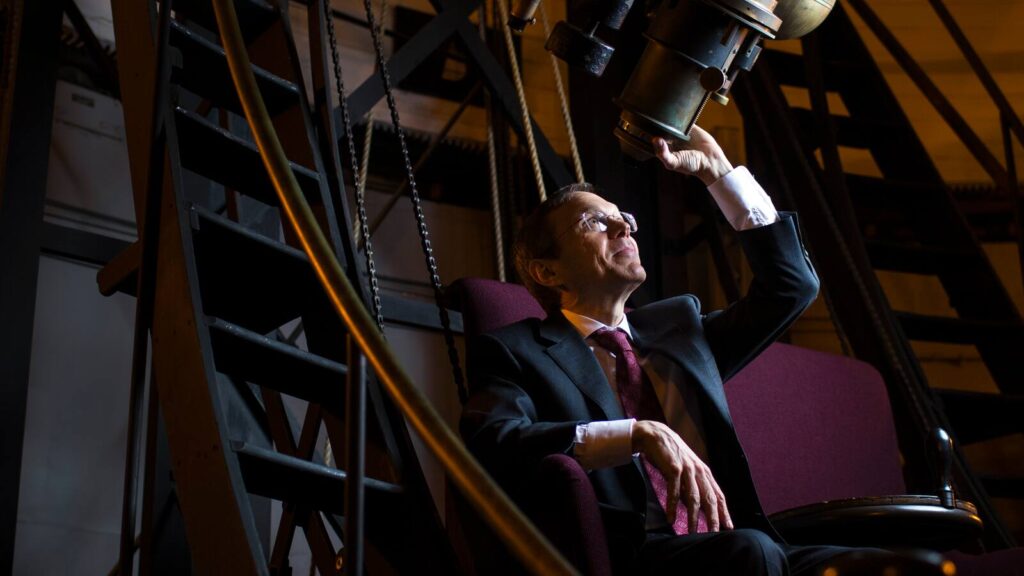Unveiling the Fascinating Life of Avi Loeb: A Journey from Theoretical Physics to Extraterrestrial Discoveries

Avi Loeb is a name that stands out in the world of astrophysics and cosmology. Known for his groundbreaking research and bold ideas, Avi Loeb has made a lasting impact on science, from studying black holes to exploring the possibility of alien life. As a professor at Harvard University and a leader in multiple scientific initiatives, Loeb’s work has sparked both excitement and debate in the scientific community.
Avi Loeb’s most famous theory involves the interstellar object ʻOumuamua, which he proposed might be a piece of alien technology. This idea turned heads in the scientific world, challenging traditional views on space objects. His boldness in suggesting that alien civilizations might be closer than we think has made him both a visionary and a controversial figure. But beyond these theories, Loeb’s extensive career and contributions to our understanding of the universe are what truly set him apart in the field of cosmology.
How Avi Loeb’s Research Challenges Traditional Views of Space and Time
Avi Loeb’s research is not just about looking at the stars and planets. He challenges the way we think about space and time itself. For example, in his work on black holes, Loeb has argued that black holes might not behave the way scientists originally thought. Instead of being only destructive, he suggests they may also play a part in the creation of new stars and galaxies.
Loeb also brings fresh ideas about the early universe. While many scientists believe that life only appeared on Earth, Loeb has speculated that life might have existed in other parts of the universe long before us. He has even written about the possibility that life forms from other stars could travel across space to other planets.
In addition, Loeb’s work often focuses on objects that come from outside our solar system, like the mysterious ʻOumuamua. This interstellar object, which passed through our solar system in 2017, sparked much of Loeb’s interest in extraterrestrial life. He proposed that it might not just be a natural space rock, but possibly an alien spacecraft. This idea has sparked debate and raised many eyebrows in the scientific community.
The ʻOumuamua Theory: Is It Alien Technology? A Deep Dive into Avi Loeb’s Groundbreaking Hypothesis
Avi Loeb’s theory about the interstellar object ʻOumuamua has been one of his most talked-about ideas. In 2017, ʻOumuamua passed through our solar system. It was unlike any comet or asteroid we had ever seen before. Loeb noticed its unusual shape, speed, and movement, which didn’t quite match the behavior of typical space rocks.
Loeb suggested that ʻOumuamua could be an artificial object, possibly a spacecraft sent by an advanced alien civilization. This theory is still debated. Many scientists believe it was just a natural space rock, but Loeb’s hypothesis opened up new ways to think about what could be out there in space.
- The object’s strange shape and acceleration puzzled scientists.
- Loeb proposed that it could be a solar sail, a thin material used to harness light for movement.
- His theory encourages us to think beyond our own understanding of space and technology.
While some experts disagree with Loeb’s theory, it has sparked new research into the possibility of finding alien technology in our galaxy. The debate continues, but Loeb’s work has shown that science should always remain open to new ideas.
Avi Loeb and the Search for Extraterrestrial Life: What We Can Learn from His Work

Avi Loeb’s quest to answer the big question – “Are we alone in the universe?” – is a key part of his scientific journey. Over the years, Loeb has explored the idea that other civilizations might exist in far-off galaxies. He believes that our search for extraterrestrial life should not only focus on finding signs of alien signals but also physical objects.
Loeb’s work on objects like ʻOumuamua and his involvement in projects like The Galileo Project show that he is committed to seeking hard evidence of extraterrestrial technology. By using advanced telescopes and other tools, Loeb aims to gather data that can help us better understand what might be out there.
- Loeb’s work helps bring attention to the need for new ways to search for extraterrestrial life.
- His Galileo Project aims to find physical objects or signs of alien technology.
- Loeb’s theories challenge traditional views and encourage a more open-minded approach to space exploration.
By encouraging scientists to think outside the box, Avi Loeb is making significant contributions to the search for alien life. His work is a reminder that science is about asking big questions and being open to new possibilities.
The Galileo Project: A Step Towards Finding Alien Technology
The Galileo Project is one of Avi Loeb’s most ambitious initiatives. Launched in 2021, this project aims to systematically search for evidence of extraterrestrial technological artifacts. Unlike many other projects, Loeb’s focus is on discovering physical objects or structures in space, rather than just listening for alien signals.
The Key Goals of the Galileo Project:
- High-Resolution Imaging of UAPs (Unidentified Aerial Phenomena): Loeb aims to use powerful telescopes to capture images of objects that might be extraterrestrial in nature.
- Exploring ʻOumuamua-like Interstellar Objects: Loeb wants to find more objects like ʻOumuamua that might have passed through our solar system from other star systems.
- Searching for Alien Satellites: Another goal of the project is to look for any satellites or probes that might have been left by alien civilizations.
Through the Galileo Project, Loeb hopes to gather concrete evidence of alien technology that can be studied scientifically. This could change our understanding of the universe and our place in it. Whether or not his search leads to discovering extraterrestrial life, the Galileo Project is an important step in making the impossible seem possible.

Is Avi Loeb Right About Extraterrestrial Life? A Look at the Science Behind His Bold Claims
Avi Loeb’s ideas about extraterrestrial life have stirred a lot of discussions. While some scientists support his theories, others are more cautious. Loeb’s suggestion that ʻOumuamua could be alien technology has been criticized by many experts who think the evidence is not strong enough. However, his open-minded approach has sparked new conversations about what is possible in the field of space exploration.
Loeb’s work is important because it encourages scientists to ask bigger questions and not shy away from controversial ideas. By suggesting that alien technology could be out there, he challenges scientists to look beyond our current understanding of the universe.
- Some experts argue that Loeb’s ideas are too speculative.
- Others believe that his willingness to explore the unknown is what drives scientific progress.
- Loeb’s work is a reminder that science should never stop asking questions and seeking answers.
While there is still a lot of debate, Avi Loeb’s contributions to the search for extraterrestrial life continue to influence the direction of modern science. Whether or not his claims are proven, Loeb has opened new doors for scientific inquiry that could one day lead to exciting discoveries.
The Impact of Avi Loeb’s Ideas on Our Understanding of the Universe
Avi Loeb’s ideas have had a significant impact on how we think about the universe and our place in it. His research has expanded our view of space, from the birth of stars and galaxies to the potential for life beyond Earth. Loeb’s bold hypotheses challenge the conventional wisdom of scientists and encourage a fresh approach to exploring the cosmos.
Through his work, Loeb has highlighted the importance of open-mindedness in science. He argues that we should be willing to consider all possibilities, even if they seem unconventional. His research on objects like ʻOumuamua, his theories on extraterrestrial life, and his work on black holes have all pushed science forward.
- Loeb’s research encourages us to think about the universe in new and exciting ways.
- His work has prompted other scientists to reconsider existing models of space and time.
- By exploring unconventional ideas, Loeb is helping shape the future of cosmology.
Thanks to Avi Loeb, many scientists are now asking new questions and considering new ways to explore the universe, which will undoubtedly lead to even more groundbreaking discoveries in the future.
How Avi Loeb’s Theories Have Shaped the Search for Extraterrestrial Life

Avi Loeb’s bold theories about extraterrestrial life have reshaped the way we approach the search for life beyond Earth. While many scientists focus on finding microbial life on other planets, Loeb has broadened this scope by suggesting that intelligent civilizations might exist far beyond our own galaxy.
Loeb’s most famous theory, regarding the interstellar object ʻOumuamua, has shifted the conversation from searching for signs of life to actively looking for evidence of advanced alien technology. His belief that there might be alien spacecraft traveling through our solar system has pushed scientists to reconsider their approach to space exploration.
How Loeb’s Work Influences the Search for Extraterrestrial Life:
- Loeb has encouraged the scientific community to look for physical evidence of alien technology.
- He has proposed that alien life might not only be microbial, but intelligent and technologically advanced.
- Loeb’s theories have inspired new projects like the Galileo Project to search for alien artifacts.
Conclusion
Avi Loeb has truly changed the way we look at the universe. His bold ideas, like the possibility of alien life and new ways to study space, have sparked big conversations in science. Even though some of his ideas are different from what others believe, they make us think in new ways and ask bigger questions. Loeb’s work reminds us that science is always evolving, and sometimes the most exciting discoveries come from thinking outside the box, much like the fresh perspectives shared on Tulis Cerita.
Whether it’s his research on black holes, extraterrestrial life, or unusual space objects like ʻOumuamua, Loeb’s work encourages us to keep exploring and never stop asking questions. His vision for the future of space exploration shows us that there’s so much more to discover out there. Similarly, insights into innovative thinking can be found on platforms like Lis Bloguer and Ikonisch Welt, which explore new frontiers in various fields.
By following Loeb’s example, we can all learn to look at the world with curiosity and wonder, ready to make our own discoveries, much like how platforms like Tumblr Magazine and baddiehub continue to push boundaries in their respective domains. There is always more to learn, just like the articles and stories featured on London Zine and Fanzine Blog.
